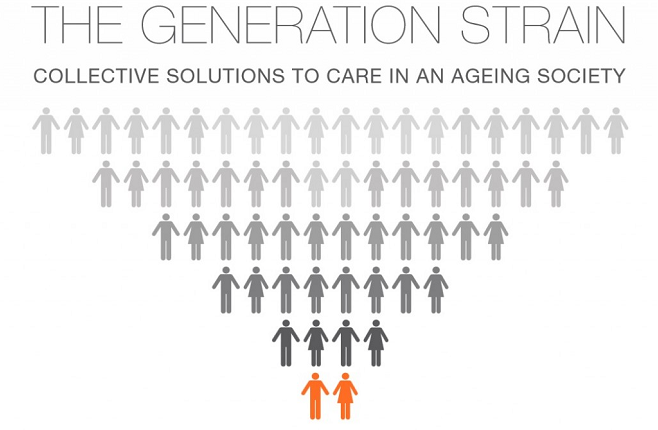The Generation Strain: New IPPR report offers recommendations on collective solutions to care in an ageing society

As the ageing population increases and as the number of older people in need of social care is set to outstrip the number of family members able and willing to give help for the first time in 2017, the demand on overstretched services and on families is predicted to rise in the future.
A new report produced by Clare McNeil and Jack Hunter of the Institute for Public Policy Research (IPPR) highlights the problems facing older people and their families and the need to transform our care system for older people.
The report: ‘The generation strain: collective solutions to care in an ageing society’ makes a number of recommendations to ‘build’ new community institutions and ‘adapt’ social structures already in place in order to tackle the growing demand for social care and prepare for the changes ahead.
The report presents four major recommendations, to be addressed as part of a five-year funding settlement across health and social care:
- New neighbourhood networksto help older people to stay active and healthy, help busy families balance work and care and reduce pressures on the NHS and social care.
- Care coordinatorsproviding a single local point of contact, to replace the ‘case management’ currently provided by adult social services in every area by 2020, for all but the most complex cases of care.
- The option of a shared budgetto enable those using community care to arrange this collectively.
- Stronger employment rightsfor those caring for people who need more than 20 hours of care a week, to make it easier for family members to combine work and care.
The UK branch of Calouste Gulbenkian Foundation, whose objective is to enable long-term improvements in well-being, has contributed to funding this report. The full report can be accessed here on the IPPR website.
